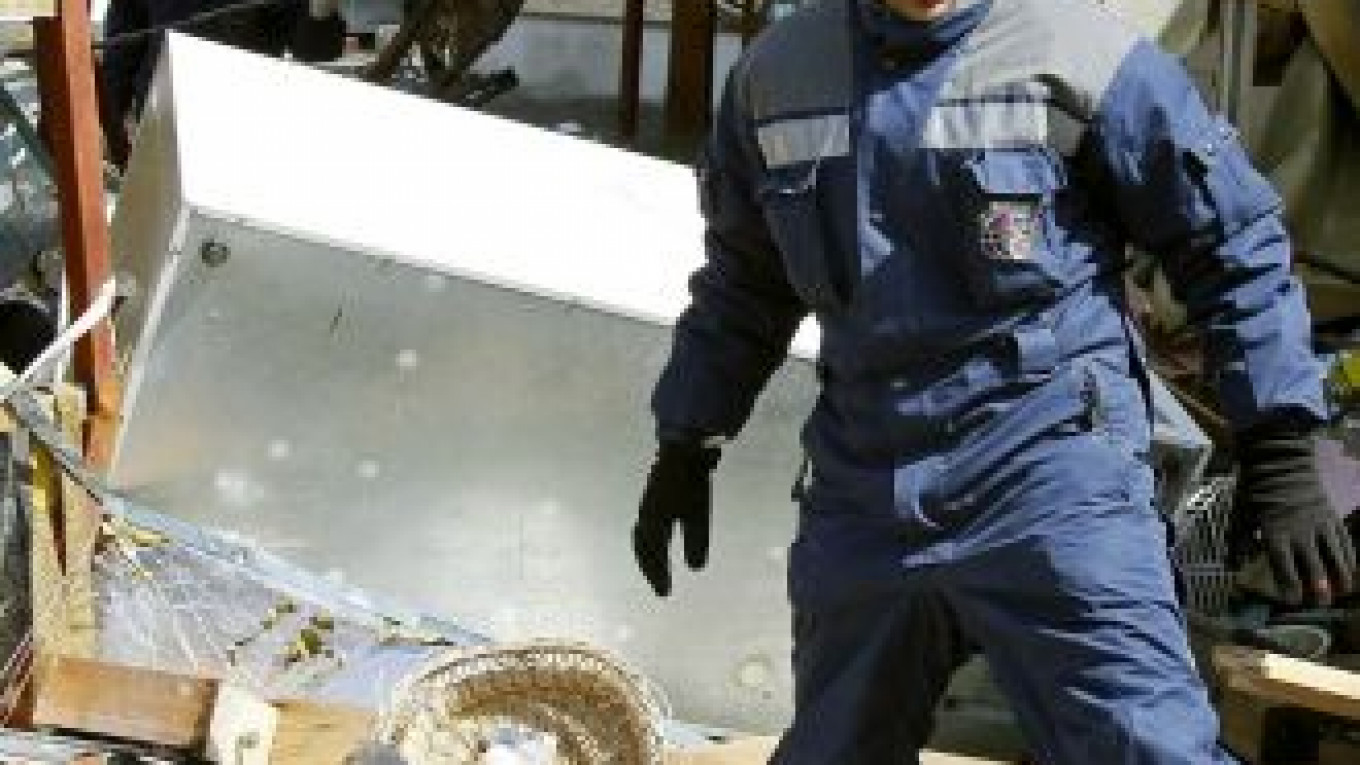Prime Minister Vladimir Putin said Sunday that Japan was starting to get control of the situation at its stricken nuclear power station.
"Our Japanese colleagues are gradually, not right away and with mistakes … getting the situation under control," Putin told a meeting of nuclear specialists and emergency workers in the Sakhalin Island city of Yuzhno-Sakhalinsk in the Far East.
Loudspeakers in the city of 200,000 people, about 1,000 kilometers north of the stricken Fukushima nuclear plant, blasted out announcements of radiation levels, while crews of emergency workers measured levels across the city.
Putin tried to reassure the 6.5 million people who live in the vast swathes of the Far East that there was no immediate danger from the Japanese nuclear accident, the worst since the 1986 Chernobyl disaster.
"The work is being done properly, in the right way — 24 hours a day," Putin said of radiation monitoring efforts by Russian authorities.
Russian nuclear officials who had returned from Japan just a few hours previously told Putin there was no danger to the population in Russia. Dozens of Russian emergency workers have also flown to Japan, joining about 60 countries in assisting in rescue efforts after a 9.0-magnitude earthquake and tsunami that killed at least 8,000 people on March 11.
The Emergency Situations Ministry said Sunday that radiation levels were within the norm on Sunday in the Far East.
"Radiation levels range from 13 to 19 microroentgens per hour as compared with the natural background radiation of 30 microroentgens per hour in the Far East," the ministry said in a statement carried by RIA-Novosti.
Trace amounts of radioactive iodine have been found in milk and spinach and could prove harmful to health if consumed, Japanese media reported.
Russian officials said the visit by Putin, by far Russia's most popular politician, would help reassure local people, some of whom have bought up iodine tablets and devices to measure radiation in recent days.
"If the prime minister came it means everything is fine," Viktor Ishayev, President Dmitry Medvedev's envoy to the Far East, told Putin.
(Reuters, MT)
A Message from The Moscow Times:
Dear readers,
We are facing unprecedented challenges. Russia's Prosecutor General's Office has designated The Moscow Times as an "undesirable" organization, criminalizing our work and putting our staff at risk of prosecution. This follows our earlier unjust labeling as a "foreign agent."
These actions are direct attempts to silence independent journalism in Russia. The authorities claim our work "discredits the decisions of the Russian leadership." We see things differently: we strive to provide accurate, unbiased reporting on Russia.
We, the journalists of The Moscow Times, refuse to be silenced. But to continue our work, we need your help.
Your support, no matter how small, makes a world of difference. If you can, please support us monthly starting from just $2. It's quick to set up, and every contribution makes a significant impact.
By supporting The Moscow Times, you're defending open, independent journalism in the face of repression. Thank you for standing with us.
Remind me later.






